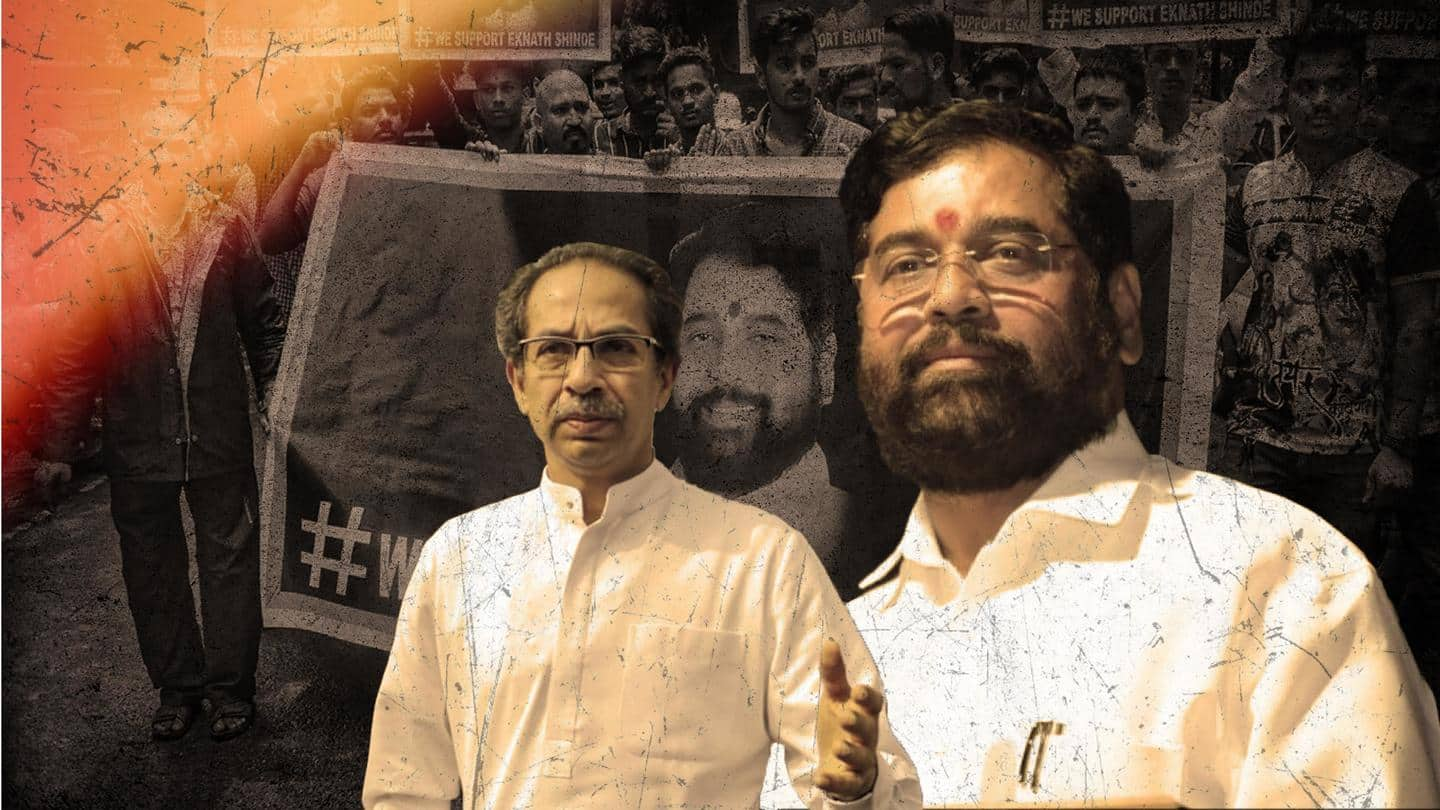
#NewsBytesExplainer: How does anti-defection law play into the Maharashtra crisis
What's the story
Amid the political crisis in Maharashtra with rebel Shiv Sena MLA Eknath Shinde claiming the support of a majority of party MLAs, the discussion on the anti-defection law is back in the picture.
Maharashtra is not the first state to face such a crisis and certainly will not be the last.
So, let's understand what the anti-defection law is.
Context
Why does this story matter?
Maharashtra is currently in a political crisis after rebel Sena MLA Eknath Shinde claimed that he has 40 MLAs with him to challenge the present government.
He was displeased with Sena joining hands with Congress and NCP to form the Maha Vikas Aghadi (MVA) alliance.
He claimed that the Sena MLAs were sidelined, while those from the alliance partners got more opportunities and funds.
Defection
What is anti-defection law?
In political parlance, defection happens when an elected member of a party moves to a rival party.
In such a case, the anti-defection law lets the party disqualify such MLAs who voluntarily give up the membership of the party after being elected.
It also applies to independent MLAs, who are barred from joining a political party and can lose their legislative membership.
Exceptions
When does anti-defection law not apply?
The anti-defection law, however, doesn't apply if two-thirds of members leave the party.
Such instances have earlier been seen in Rajasthan when six Bahujan Samaj Party (BSP) MLAs joined the Congress in 2019.
In 2021, 12 of 17 Congress MLAs joined the Trinamool Congress.
Four of the six Telugu Desam Rajya Sabha MPs joined the Bharatiya Janata Party.
Speaker
Shinde camp needs 37 MLAs
If the Shinde camp has 30 MLAs, it doesn't reach the two-thirds number (37) of 55 Shiv Sena MLAs in the Maharashtra assembly.
Therefore, the anti-defection law can be used against the camp and the assembly Speaker has the final word on this.
The Speaker's post is lying vacant, so now the acting speaker, Narhari Zirwal of the NCP will decide on the matter.
Details
How does the law work?
Any MLA of the party has to file a petition before the deputy speaker that MLAs have defected. It has to be substantiated with documentary evidence.
Then the MLAs would be given time that is decided by the deputy speaker to put forth their version.
On the other hand, the defecting MLAs have to submit proof that they have a two-thirds majority.
Information
Rajiv Gandhi moved Anti-Defection Bill
The Anti-Defection Bill was proposed by the then Prime Minister Rajiv Gandhi after winning an absolute majority in the Centre after the assassination of his mother and Prime Minister Indira Gandhi in 1984. The Act came into effect in March 1985.
Strategy
How have politicians circumvented the law?
There have been instances when politicians have found ways to bypass the law.
At times, MLAs resign from their seats bringing down the total strength of the House.
With this, the halfway mark of the House falls and puts the defecting MLAs in a better position to claim a shot at forming the government.
Notably, the Supreme Court has also endorsed this strategy.